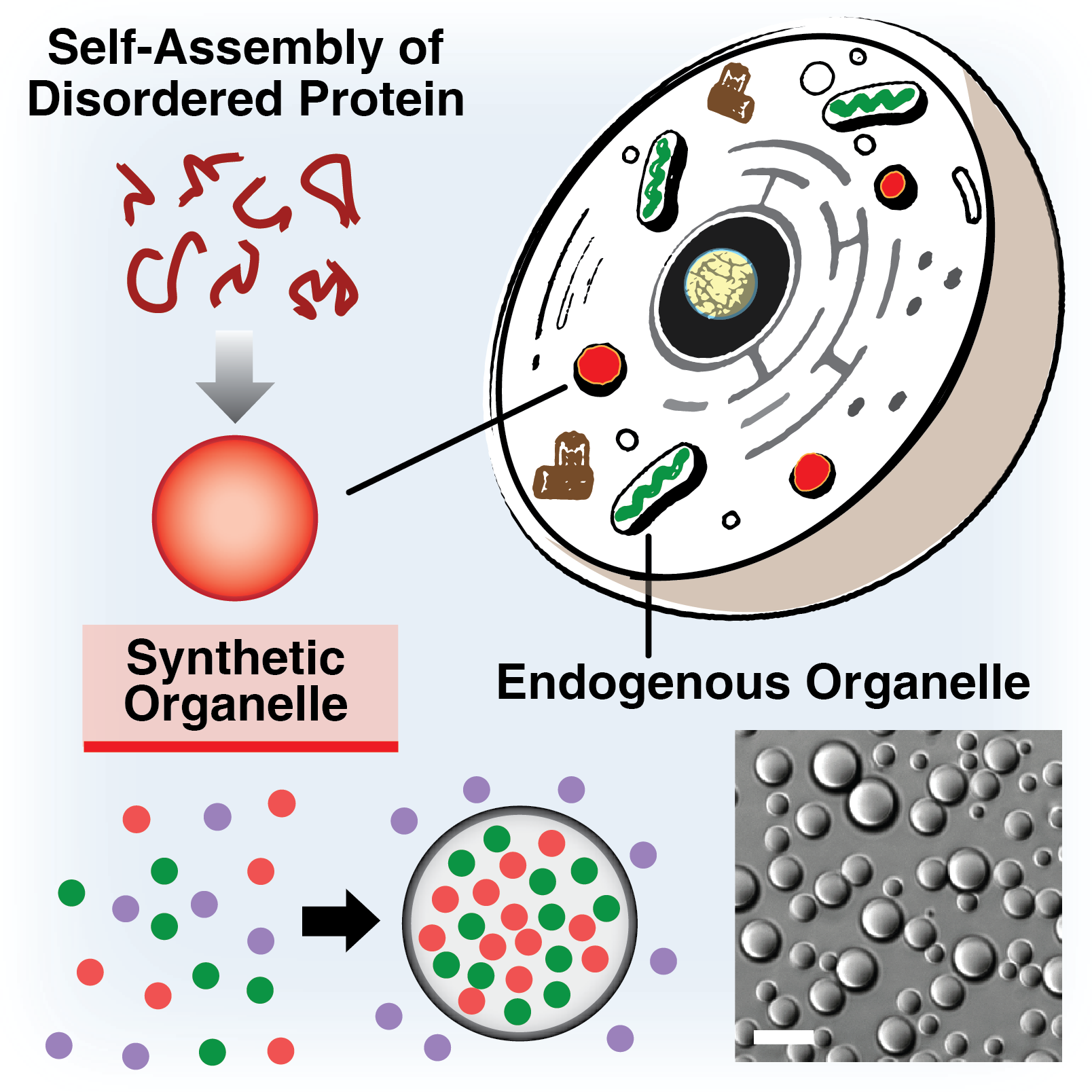 posted: 08/29/2018
posted: 08/29/2018
The NSF awarded the Penn MRSEC funding ($500K) for a brand new SUPERSeed, entitled Membraneless Organelles with Designed Function from Engineered Assemblies of Intrinsically Disordered Proteins. The objective of the SuperSeed is to construct genetically-encoded materials that predictively self-assemble into micron-size liquid condensates in vitro, and in cells via coacervation of intrinsically disordered proteins (IDPs). The SuperSeed is led by Matthew Good (Cell and Developmental Biology, Bioengineering) and Elizabeth Rhoades, (Chemistry). They will be collaborating with Daniel Hammer and Daeyeon Lee (Chemical and Biomolecular Engineering) and Jittain Mittal (Lehigh University). The proposed studies leverage team expertise on intrinsically disordered proteins and principles of molecular self-assembly to construct mesoscale structures inside living cells. By integrating computational design and experimentation this team will develop rules that govern the assembly of nanoscale IDPs into organelles. Additionally, synthetic organelles will be engineered to sense the environment and regulate cellular decision-making, thereby mimicking and extending the rules of life that underlie cellular organization. This Penn collaboration was among the winners of highly competitive summer SuperSeed competition spanning all MRSECs (34 submissions).
